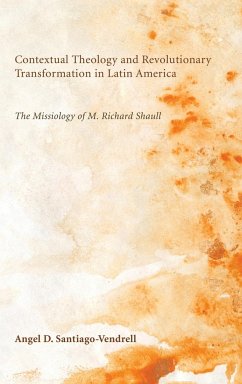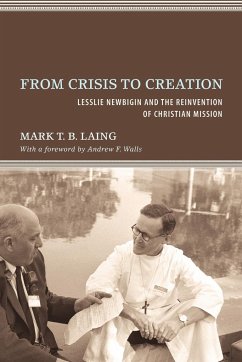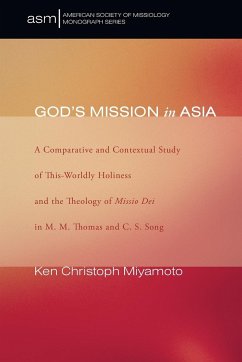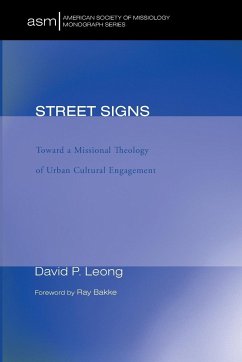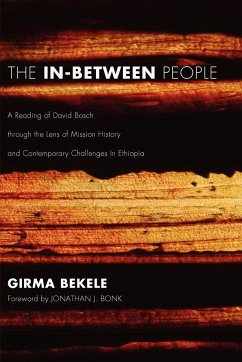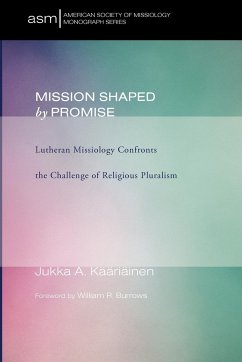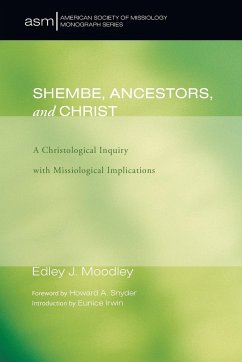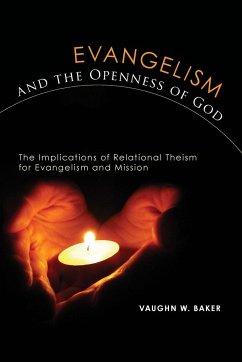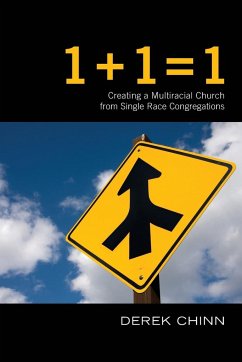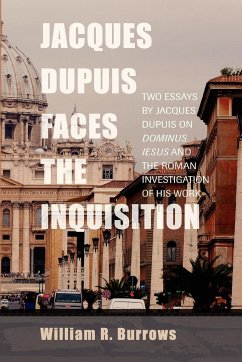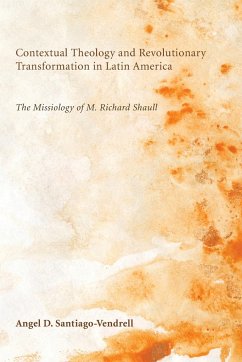
Contextual Theology and Revolutionary Transformation in Latin America
Versandkostenfrei!
Versandfertig in 1-2 Wochen
23,99 €
inkl. MwSt.
Weitere Ausgaben:

PAYBACK Punkte
12 °P sammeln!
U.S. audiences know Latin American liberation theologies largely through translations of Latin American Catholics from the 1970s and beyond. Most of the few known Protestant authors were students of Richard Shaull, whose critical thinking on social change, prophetic Christianity, and dialogue with Marxism and Christian use of Marxist analysis precedes the emergence of the formal schools of liberation theology by two decades. His own education at Princeton, and the education he provided in Brazil, charts the course of Protestant influences into this stream of theological reflection that became ...
U.S. audiences know Latin American liberation theologies largely through translations of Latin American Catholics from the 1970s and beyond. Most of the few known Protestant authors were students of Richard Shaull, whose critical thinking on social change, prophetic Christianity, and dialogue with Marxism and Christian use of Marxist analysis precedes the emergence of the formal schools of liberation theology by two decades. His own education at Princeton, and the education he provided in Brazil, charts the course of Protestant influences into this stream of theological reflection that became a global phenomenon in the latter decades of the twentieth century. Also, Shaull's career roughly parallels the emergence of the World Council of Churches and the engagement of the Catholic Church--in Latin America and around the world--after the Second Vatican Council. He himself was engaged, and became the flash point, in some of the major conferences, movements, and institutions of the 1960s and beyond. Santiago-Vendrell documents the entrance of the ecumenical movement in Brazil, among the most dramatic transformations in Catholic-Protestant relations around the globe, as well as Shaull's role in that development. Along the way he notes Shaull's prophetic and destabilizing role in the worldwide student movement in the 60s and 70s, charting decisions that mark the ecumenical movement. Shaull's contributions are important for an understanding of the ethical debates in the worldwide, ecumenical Protestant and Orthodox communities. Santiago-Vendrell examines primary, secondary, and historical documents that shine a light on Shaull's transformation into a contextual theologian of the poor. He offers a definitive view of this North American Protestant missionary who wrote extensively on Latin American liberation theology, the base Christian communities, and how conversion to solidarity with the poor offers transforming possibilities for the mainline churches' theological identity and practical faith.





